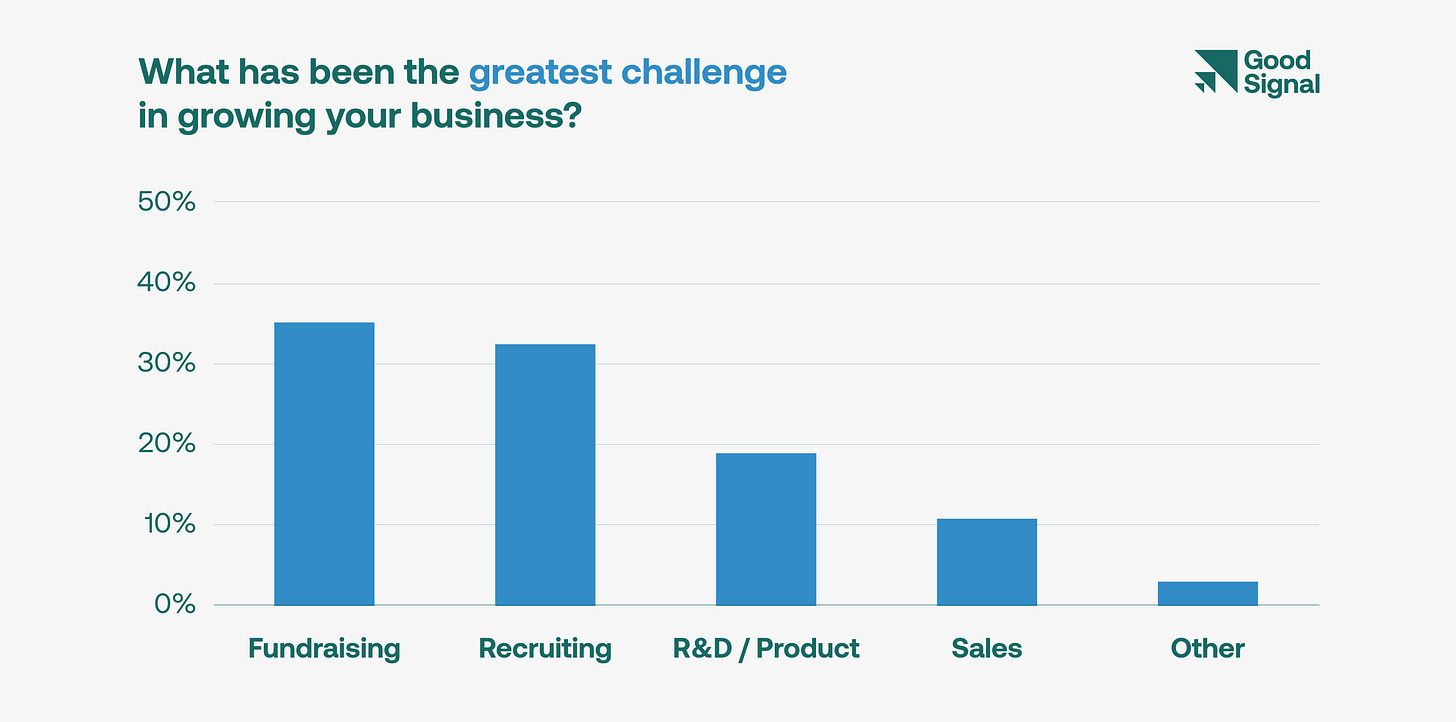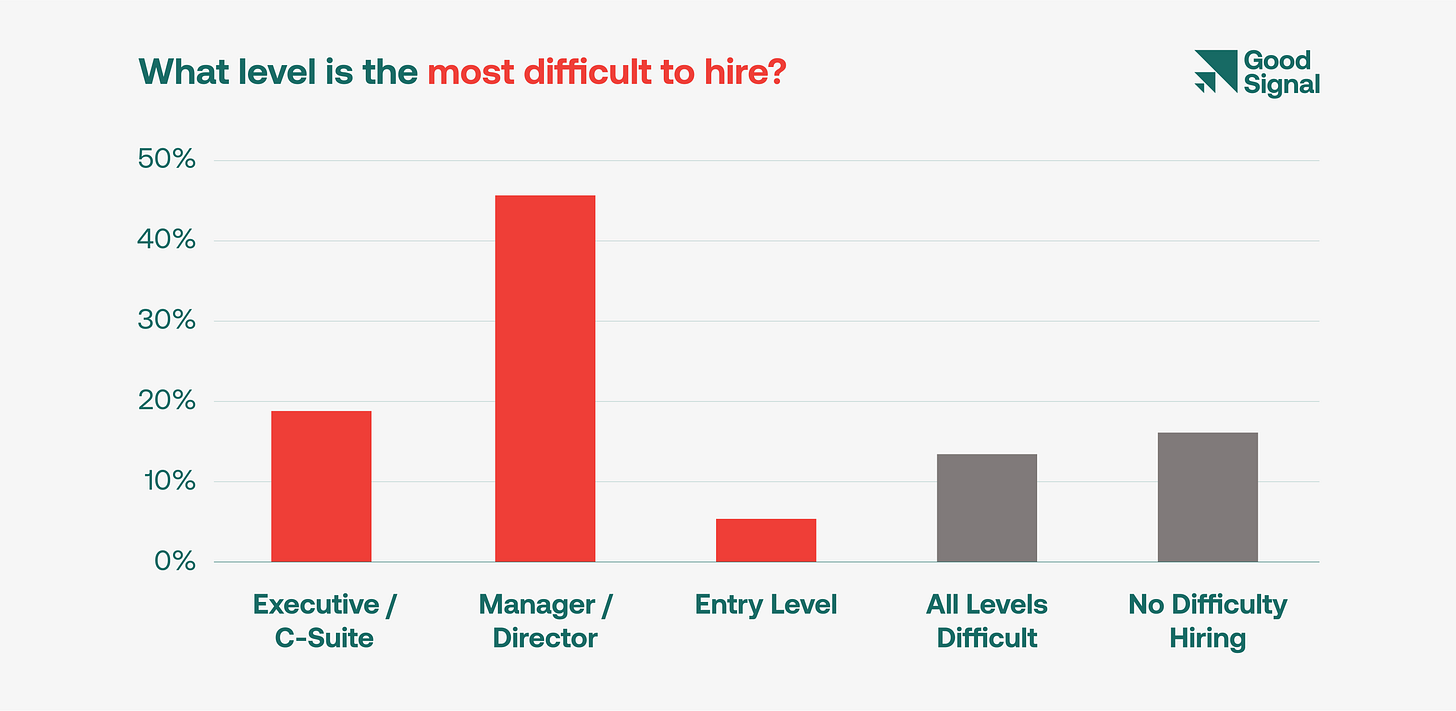Growing Pains: A Survey Of Alt Protein Startups
“In a startup, absolutely nothing happens unless you make it happen.”
Marc Andreessen, Founder – Netscape & Andreessen Horowitz
To avoid a climate and environmental disaster, a fundamental transformation of the economy and key industries is imminent. Foremost among these are energy, transport, and food. Alternative protein startups are at the forefront of the transformation of the food industry. Going the distance for these startups will not only require focus, tenacity, and hard work but also the right mix of strategy, R&D, product, operations, talent, funding, and customers. The startup journey is anything but smooth; it takes many iterations to get it right. Starting a new business is tough in any environment, but it is even more so under the challenging macroeconomic conditions we face today. To grow, startups need three things: money, staff, and customers. Good Startup reached out to startups in the alt protein industry with an in-house survey from 1 Sep – 21 Sep. The survey focused on the challenges they faced across three key areas – fundraising, talent, and sales. Before we delve into their responses, let’s take a closer look at the diversity of the respondents.
The survey respondents represent an almost even split of plant-based, fermentation and cultivated technologies. Alternative meat represents the largest product vertical along with sizeable representation from ingredients, seafood, and dairy. Regionally, Asia and North America comprise the largest contingent, followed closely by Europe. We feel that the diversity of the survey respondents closely mimics the alternative protein industry overall.
Top Challenges
Although fundraising remains a perennially challenging issue for startups, the need for talent has become equally acute in the alternative protein industry.
Because alternative proteins utilise multiple technology stacks, a new set of talent capabilities is required, which often comes from other sectors and regions and thus requires additional effort and capital to secure. The shortage of talent is not only limited to fermentation and cultivated meat startups, but also includes startups focusing on plant-based technologies.
Fundraising
54% of the survey respondents cited that fundraising rounds are taking longer to close with lower valuations overall. While the money hasn’t dried up, the focus has shifted towards sustainable capital efficient growth resulting in enhanced due diligence. The ‘growth at any cost’ paradigm that characterised the last few years in no longer the norm; instead, investors today want to see a focus on unit economics and a sustainable business model. Valuation corrections in the sector will intensify as more companies will be forced to tap private markets for additional capital.
A majority of the startups surveyed feel that less than 50% of their investors add value. Also, while investors readily help startups with fundraising along with advice and networking, the value-add is less prevalent in other areas such as talent acquisition and sales. There is an opportunity for investors to help startups grow not just to get more money, but also to hire the team and acquire new customers. The investors that do will see startups highly motivated to partner with them.
Talent
The alternative protein industry is facing a shortage of talent which is impeding its progress. When we probed startups further on the kind of talent shortage that they are seeing, 62% of them mentioned that technical talent has been the most difficult to hire. Given the industry has only taken off in the last few years, incentivising qualified scientists to switch careers from established biopharma companies or research institutions can be an arduous journey.
A standout in the survey was that 46% of the respondents found the Director or Manager level most difficult to hire. The Director level typically represents the highest level of technical competency within an organization. Entry level staff graduate to become Managers, then Directors, gaining expertise in a single, specific functional area (e.g. Director of Food Safety). As such, the competencies of a company principally lie with its Directors while Vice Presidents/C-Suite executives manage departments with multiple competencies or Directors. Startups are also facing a dearth of leadership talent, with 19% of respondents citing hiring for executive positions as the most challenging. The survey reveals that the alternative protein industry needs both functional leadership (e.g. Directors) and company leadership (e.g. C-Suite). These concerns transcend industries as hiring and talent remains the top priority of 77% of business leaders according to the PWC Pulse Survey 2022. However, an inability to attract the right talent could have disproportionately bigger implications for a fast-growing nascent industry such as alternative proteins. As universities ramp up their alternative protein curricula to improve the supply of talent, startups must find other methods to attract experienced staff such as equity participation to compensate for the additional risk.
Sales
To cross the chasm and move beyond early adopters, the alternative protein sector must achieve price parity with animal products. While a meagre 14% of the respondents say they are at price parity today, a whopping 76% expect to be at price parity with conventional products within the next 3 years.
This suggests a sea change for the industry in its next 1,000 days or so as a vast majority of product offerings will be priced to compete effectively with animal products. In addition to taste parity, this is considered a key factor by industry experts to drive mainstream adoption of alternative meat products. To reach this point, nearly 70% of startups see lack of infrastructure and technological innovation as key hurdles. Regardless, the industry appears to be moving towards offering a wide array of competitively priced products by 2025.
Growing Pains
For a founder, the startup journey can feel like staring into the abyss. Finding money, talent, and customers is a juggling act that startup teams live though each day. For a young company in a nascent industry, there are challenges abound.
There have been few transformations in human history such as the one that the food industry is undergoing; its success impacts our planet’s resources, our oceans, forests, and climate, as well as human health and sustainability. The stakes for the success of the industry are too high to leave any room for error. While alternative protein startups face a challenging road ahead, they have demonstrated that it is unwise to bet against them as they reach new milestones, forge alliances, create new products and find more customers. Our survey ultimately shows an industry finding its footing, with startups leading the way.






